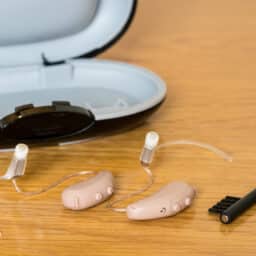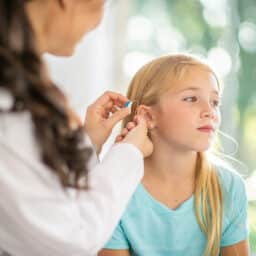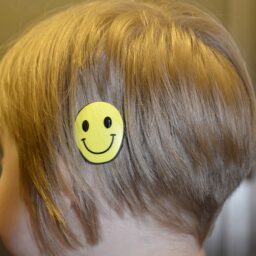What to Expect During a Hearing Evaluation at Our Practice

Approximately 37.5 million U.S. adults have some degree of hearing loss. Treating hearing loss starts with a hearing evaluation. If you’ve noticed any changes to your hearing, or are looking to stay proactive with your hearing health, here’s what you can expect from our expert team at when you come in for your hearing evaluation….
Tips for Attending Sports Events with Hearing Loss

Football season is starting! Whether you’re a die-hard NFL fan or going to your kids’ Little League game, you know that sporting events can be high-energy: announcements over the loudspeakers, cheering crowds and loud whistles. While fun, this can present significant challenges if you suffer from hearing loss. We’ve compiled tips below to help you…
Headphones and Your Child’s Hearing: Tips to Keep Their Ears Safe

Headphones are everywhere. Kids use them for school, gaming, music and movies. Unfortunately, all that headphone use might not be the safest for their hearing. It’s not always easy to tell your child, “that’s too loud” or “turn it down.” But protecting their hearing now can prevent problems later. Let’s take a look at what…
Hearing Aid Batteries: Rechargeable vs. Replaceable

Choosing a hearing aid is about more than just sound quality and style. While many hearing aids offer rechargeable devices, users still must select which option best suits their lifestyle. Rechargeable Hearing Aid Batteries Rechargeable batteries are built into the hearing aid and powered using a charging dock or cable. These have become increasingly popular…
Can Temperature Changes Affect Hearing?

Some people may notice their hearing seems to change depending on the weather. While it might seem surprising, some variations in weather can have an impact on your ears and how well you hear. Understanding why this happens can help you protect your hearing health year-round. How Temperature Affects the Ears The ears are sensitive…
What Does an Educational Audiologist Do?

Hearing plays an important role in students’ learning routine at school. For students with hearing loss, educational audiologists provide support, ensuring they have the tools and accommodations needed to thrive in school. How Educational Audiologists Support Students Educational audiologists focus on making learning environments more accessible for students with hearing loss. Their work ranges from…
The Link Between Hearing Loss and Stress and Anxiety

Sometimes, it can feel like everything in your life is deliberately trying to stress you out. From work or school to taking care of kids and driving in traffic, your list of stressors may feel difficult to manage. If you’re among the 15% of U.S. adults with hearing loss, you might have even more stressors…
When Is a Cochlear Implant Necessary

If you have moderate to severe hearing loss, a cochlear implant could be a viable solution. Let’s explore what cochlear implants are and how they assist individuals who struggle with hearing but don’t find traditional hearing aids helpful. What Are Cochlear Implants? Cochlear implants are small electronic devices designed to electrically stimulate the auditory nerve,…
What Will My Life Look Like With Hearing Aids?

Living with hearing loss can be challenging, especially in today’s fast-paced world. Many might wonder, “How will hearing aids fit into my life?” or “Will they make a difference?” Part of these fears stem from a misunderstanding of how modern hearing aids work. You may have an idea in your head of cumbersome and ineffective…
How To Wear Hearing Aids With Glasses

Adjusting to new assistive devices can be challenging, especially when juggling glasses and hearing aids. If you’ve been wearing hearing aids and are now adding glasses to the mix, it’s natural to wonder how these two tools will work together comfortably. Don’t worry—you can do a few things to ensure a perfect fit. Let’s explore…